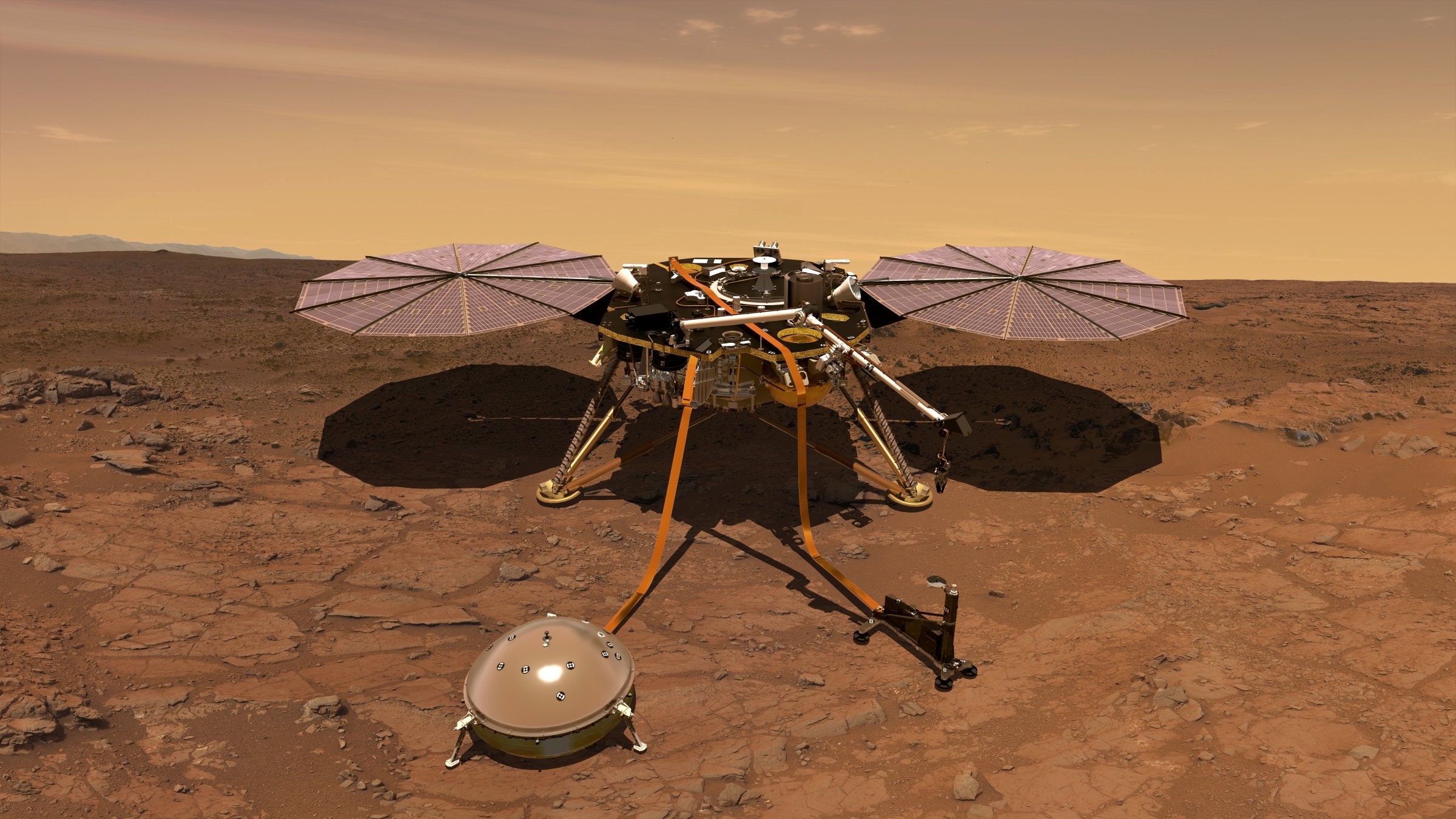
One of the great differences between Mars and Earth involves what’s going on beneath the surface. Our planet remains a tectonically and volcanically active world—witness the current eruptions in Hawaii—while Mars has been a cold, geologically dead place for the past three billion years. That was the thinking at least. But a new paper in Nature Astronomy challenges that accepted wisdom. Mars, it suggests, may still be geologically active today.
The findings are the result of orbital photography, surface data, and computer modeling of a lowland region near the Martian equator known as Elysium Planitia—where NASA’s Mars InSight probe landed in 2018. Researchers from the University of Arizona Lunar and Planetary Laboratory analyzed recordings of Mars quakes taken by InSight and concluded that they all result from a series of subsurface fissures dubbed Cerberus Fossae, which stretch nearly 1,300 km (800 mi.) across the Martian surface. This gives rise to what are known as mantle plumes: blob-like masses of molten rock that rise to reach the base of the crust, causing quakes, faulting, and volcanic eruptions.
Computer modeling of the region indicates that far from being geologically dead, Elysium Planitia experienced major volcanic eruptions as recently as 200 million years ago. What’s more, says study co-author and planetary scientist Jeff Andrews Hannah, in a statement: “Previous work by our group found evidence in Elysium Planitia for the youngest volcanic eruption known on Mars. It created a small explosion of volcanic ash 53,000 years ago, which in geologic time is essentially yesterday.”
If Mars is indeed so alive geologically, it increases the possibility that it is biologically alive too. What little water that remains on the Red Planet has retreated to ice at the poles and is believed to have seeped underground into unseen aquifers. Magma-generated heat could keep the water warm and liquid, providing a fertile medium for single-celled organisms that might have originally emerged when the planet was home to oceans, seas, and rivers, or, in the three or so billion years since Mars lost most of its atmosphere and water to space.
More Must-Reads from TIME
- Cybersecurity Experts Are Sounding the Alarm on DOGE
- Meet the 2025 Women of the Year
- The Harsh Truth About Disability Inclusion
- Why Do More Young Adults Have Cancer?
- Colman Domingo Leads With Radical Love
- How to Get Better at Doing Things Alone
- Michelle Zauner Stares Down the Darkness
Write to Jeffrey Kluger at jeffrey.kluger@time.com